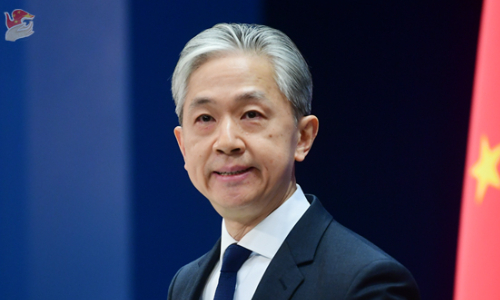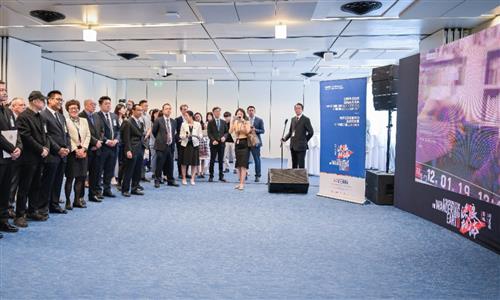
Chinese Foreign Ministry spokesperson Wang Wenbin Photo: fmprc.gov.cn
China hopes that relevant countries will demonstrate the political willingness to correct their erroneous practices and actively participate in the negotiation of legal documents on outer space arms control, Chinese Foreign Ministry spokesperson Wang Wenbin stated on Wednesday, given that some countries are unwilling to have their own space military capabilities constrained and have long denied negotiating legal instruments on technical grounds.
Wang made the remarks during a regular press conference, when asked about reaffirming the goal of preventing an arms race in outer space and the calls for all countries to initiate negotiations on an international legal instrument based on the Threat or Use of Force Against Outer Space Objects (PPWT) proposed by China and Russia.
On December 4, the 78th session of the United Nations General Assembly (UNGA) adopted a resolution entitled "No first placement of weapons in outer space" which underlines the importance of building a community with a shared future for mankind in outer space domain, the Permanent Mission of the People's Republic of China to the UN wrote on X, formerly known as Twitter.
It is the 7th consecutive year that the concept of a community with a shared future for mankind has been included in the UNGA's resolutions. This fully demonstrates that the concept of building a community with a shared future for mankind is fully consistent with the international community's aspiration for universal peace and common security, according to the Chinese Mission to UN.
On October 31, the First Committee of the 78th session of the United Nations General Assembly (UNGA) approved with strong support the resolutions titled "No first placement of weapons in outer space" and "Further practical measures for the prevention of an arms race in outer space" co-sponsored by countries including China and Russia. Both stress the importance of preventing an arms race in outer space and joint efforts to build a community of shared future for humankind, according to the Chinese Foreign Ministry.
Wang stated that maintaining the security and peace of outer space and preventing an arms race in outer space has been a long-standing common aspiration of the international community. In 1978, the United Nations Special Session on Disarmament explicitly proposed negotiating to prevent an arms race in outer space.
Over the past 40 years, the UNGA has overwhelmingly passed resolutions every year, calling for negotiations on new international legal instruments, reflecting the international community's growing concerns about the trend of weaponization and militarization of outer space.
Over the years, countries such as China and Russia have annually proposed resolutions titled "No first placement of weapons in outer space" to the UNGA, and have urged all countries to take concrete measures and initiate negotiations on relevant international legal instruments as soon as possible, Wang added.
According to Wang, these resolutions have consistently received strong support from the international community, indicating their endorsement of negotiations on international legal instruments for space arms control and their firm stance against the deployment of weapons in outer space.
Unfortunately, some countries are unwilling to have their own space military capabilities constrained and have long denied the fundamental path of negotiating legal instruments based on technical reasons, Wang said. "They have even questioned the basic consensus on preventing an arms race in outer space," he said.
"China hopes that the relevant countries will demonstrate political willingness to correct their erroneous practices, support and actively participate in the negotiation of legal documents on outer space arms control, and uphold the international order based on international law," Wang noted.
Global Times

